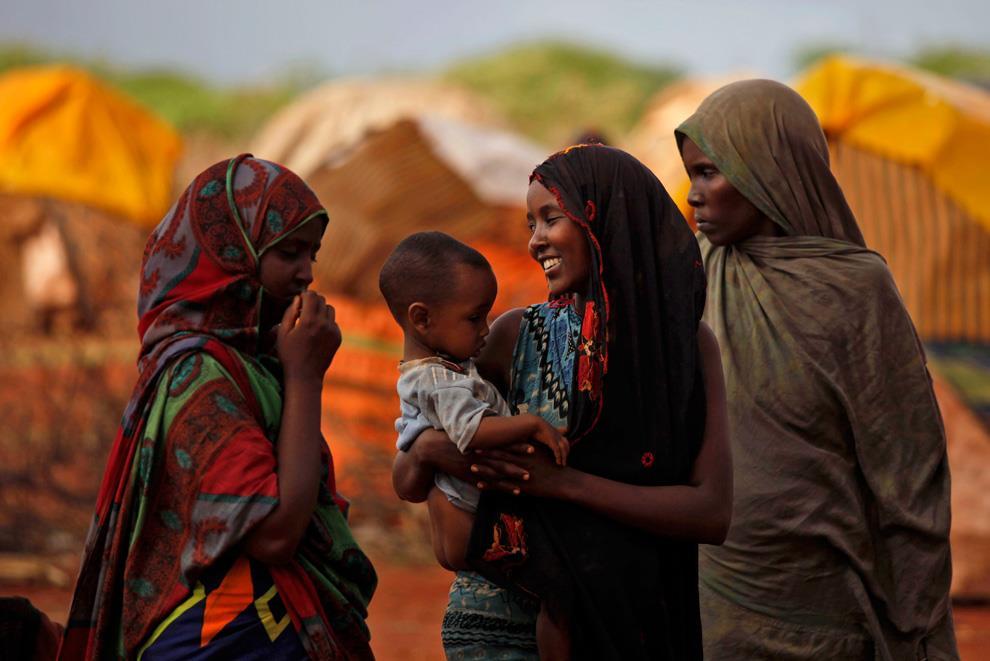Daniel Comboni
Comboni Missionaries
Institutional area
Other links
Newsletter
Saturday, December 5, 2015
The Reflection Group on Islam met in Lomé (Togo), from 29th November to 4th December. The theme of this meeting focused on Islamic fundamentalism. A very sensitive topic especially in the light of recent events. The Islamic terrorism has become a global phenomenon. The mutual understanding between Muslims and Christians is possible if it is based on a common humanity without preconceived ideological/religious ideas. Pope Francis, in the Apostolic Exhortation Evangelii Gaudium, emphasizes it beautifully: “This [interreligious]dialogue is in first place a conversation about human existence or simply, as the bishops of India have put it, a matter of «being open to them, sharing their joys and sorrows». In this way we learn to accept others and their different ways of living, thinking and speaking. (EG 250).
The Reflection Group on Islam is composed of the representatives of all circumscriptions of the Comboni Missionaries in Africa. In Lomé, however, present were only the circumscriptions of Egypt/Sudan, South Sudan, Kenya, Malawi/Zambia, Congo, Central Africa, Togo/Ghana/Benin. Also present Fr. Jerome Miante, provincial of Togo/Ghana/Benin, Fr. Edward Kanyike, provincial of Malawi/Zambia, Fr. Mariano Tibaldo, from the General administration and Sr. Pina De Angelis Comboni sister working in Cairo. Other circumscriptions, for various reasons, could not to send their representatives.
The reflection group meets every three years to reflect on some important issues concerning the Islamic world that have an impact on our pastoral and missionary work. The purpose of these meetings is essentially to know the diverse expressions and challenges of Islam in the countries where we are present, to find ways of dialogue and cooperation with Muslims but also develop programs of education for Christians on Islam. The theme of last meeting, which took place in Layibi in Uganda, was centred on ways through which Muslims spread Islam. A relevant topic, given that Islam is an outstanding presence in sub-Saharan Africa – complicated by the appearance of a fundamentalist/Wahhabi reading of Islam, relatively alien to Africa below the Sahara, generally dialogic and tolerant. The theme of this meeting focused on Islamic fundamentalism. A very sensitive topic especially in the light of recent events. The Islamic terrorism has become a global phenomenon.
The meeting in Lomé started with the circumscriptions’ presentation of Christian/Muslims relations in their respective areas. Tragic is the situation of Central Africa where the group Seleka, whose members are Muslim, had taken power ushering in a government with Muslims in higher positions; the Anti-Balaka group, whose members are mainly Christians and coming from traditional religion, opposed Seleka; the war, though - insisted Fr. Jonas Beka – is not essentially religious but it is due to a power struggle, compounded by economic interests of foreign nations: here religion is simply a tool for power. An idea stressed by other reports that underlined conflicts were not caused by religion per se, but by the cynical use of religion for economic/political gains. One of the problems common to the various realities of Islam is the radicalization of many young people who are educated in Saudi Arabia/Pakistan/Egypt and return to their respective countries ‘converted’ to a Wahhabi/fundamentalist type of Islam.
In addition to the reports from the circumscriptions, confreres who teach in Dar Comboni in Cairo offered an interesting overview of the historical development and the possible causes of Islamic fundamentalism and terrorism in its recent manifestations. They also outlined the characteristics of Islam in Africa and the phenomenon of fundamentalism in this continent; it was shown how Islam in Africa is rapidly changing: the moderate and inculturated Islam is increasingly leaving space to a fundamentalist and intolerant one.
A viable relation of the Church and especially of the Comboni Missionaries with Muslims is that of dialogue, cooperation, education for diversity; important, in this perspective, the experience of Dar Comboni Centre in Cairo and the work in the Italian hospital, also in Cairo, where several Institutes of Sisters have established a fruitful collaboration to manage a hospital that has become a meeting place for dialogue and understanding between Christians and Muslims.
The path of dialogue, mutual cooperation and understanding are, therefore, the only viable way for a fruitful pastoral presence in the Muslim world; this is also the only strategy that can counter Islamic extremism - not forgetting the necessity to educate Christians on issues concerning Islam and Muslims.
“Interreligious dialogue: An attitude of openness in truth and in love must characterize the dialogue with the followers of non-Christian religions, in spite of various obstacles and difficulties, especially forms of fundamentalism on both sides. Interreligious dialogue is a necessary condition for peace in the world, and so it is a duty for Christians as well as other religious communities. This dialogue is in first place a conversation about human existence or simply, as the bishops of India have put it, a matter of “being open to them, sharing their joys and sorrows”. In this way we learn to accept others and their different ways of living, thinking and speaking. We can then join one another in taking up the duty of serving justice and peace, which should become a basic principle of all our exchanges. A dialogue which seeks social peace and justice is in itself, beyond all merely practical considerations, an ethical commitment which brings about a new social situation. Efforts made in dealing with a specific theme can become a process in which, by mutual listening, both parts can be purified and enriched. These efforts, therefore, can also express love for truth.”
Apostolic Exhortation Evangelii Gaudium, n. 250.









